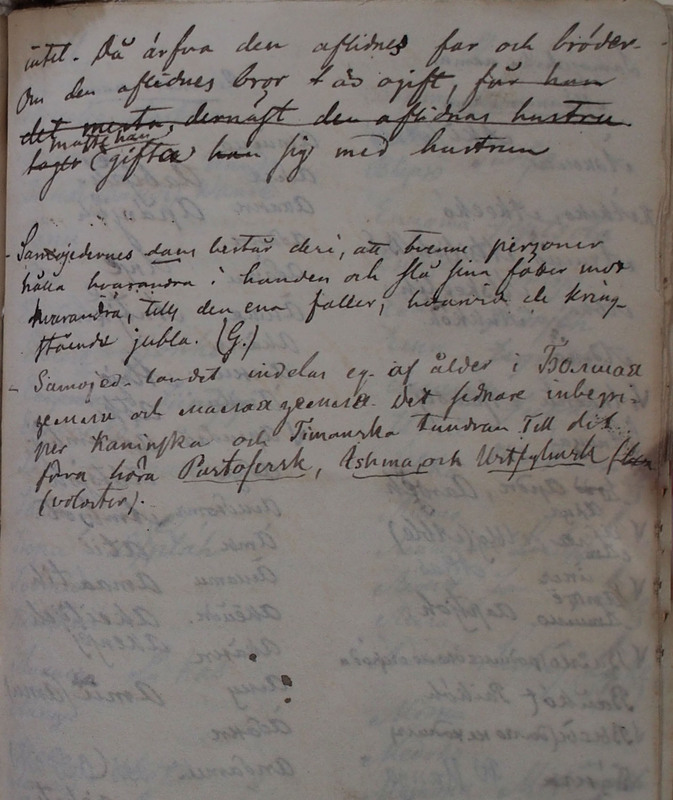Strödda ethnographiska anteckningar. 015
Title
Strödda ethnographiska anteckningar. 015
Description
| intet. Då ärfva den aflidnes far och bröder. Om den aflidnes bror är ogift, får han det mesta, dernäst den aflidnes hustru tager måste han gifta sig med hustrun. |
nothing. In that case, the father and the brothers of the deceased inherit. If the deceased's brother is unmarried, he must marry the wife. |
| Samojedernes dans består deri, att tvenne personer hålla hvarandra i handen och slå sina fötter mot hvarandra, tills den ena faller, hvarvid de kring- stående jubla. (G.) |
The Samoyed dance consists of two people holding each other’s hands and hitting their feet against each other, until one falls down, in which case the one who is standing cheers. (G.) |
| Samojed-landet indelas eg. af ålder i
Болшая земли
Bolʹšaja zemlja or the Bolʹšezemelʹskaja tundra (TN Ңарка я) is an area between the River Pečora and the Ural Mountains. As Castrén notes here, the volostʹs of Pustozersk, Ižma, and Ustʹ-Cilʹma were situated in the Bolʹšezemelʹskaja tundra.
och Малая земля
De sednare inbegri-Malaja zemlja or the Malozemelʹskaja tundra (TN Нюдя я) is an area between the Rivers Indiga and Pečora. (NAO-ES, 154: 256–257)
per Kaninska
och
The term ‘Kaninskaja tundra’ is often used for the Kanin Peninsula (TN Саля) and the area between Mezenʹ Bay and the River Pëša. (NAO-ES: 119–120.)
Timanska tundran.
Till det The Timanskaja tundra is a plain (TN лапта) stretching from the River Pëša to Pečora Bay. (NAO-ES, 154: 256–257)
förra höra Pustosersk, Ishma och Ustsylimsk (voloster). |
The Samoyed land is divided into Bol'šaja zemlja and Malaja zemlja. The latter includes the Kanin and Timan tundra. The volosts of Pustosersk, Ishma, and Ustsylimsk belong to the former. |

